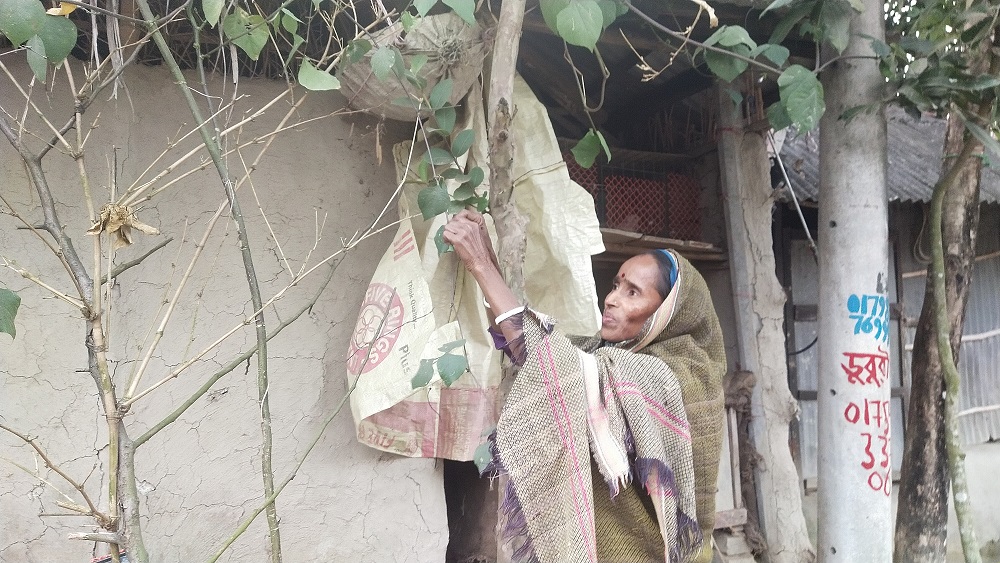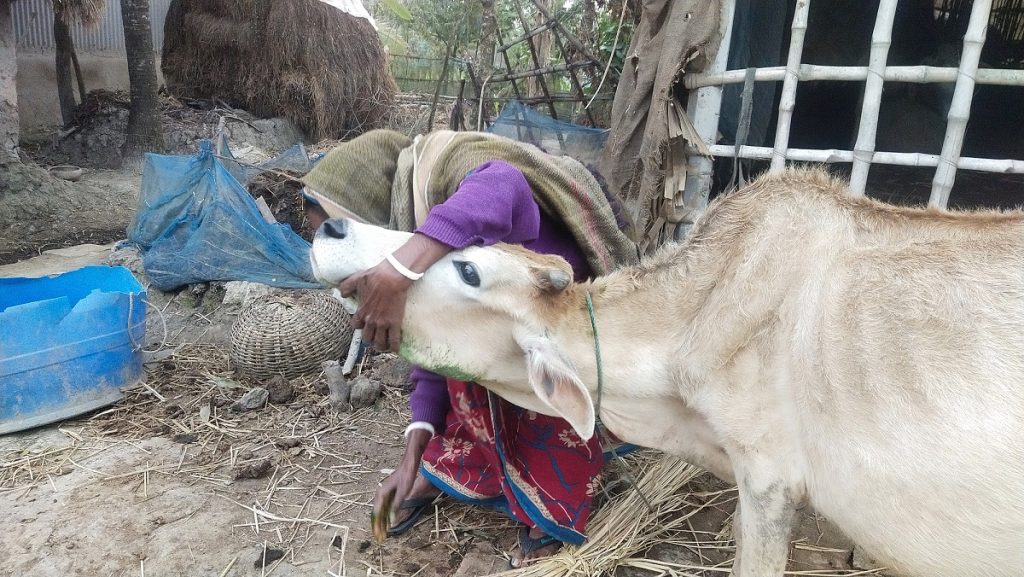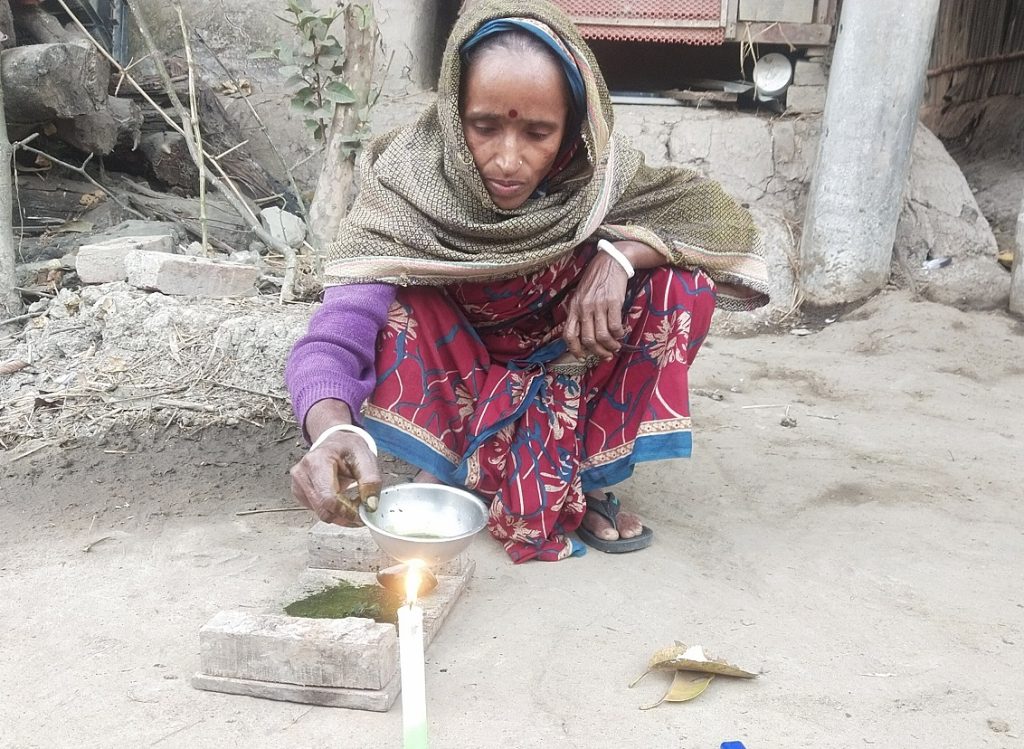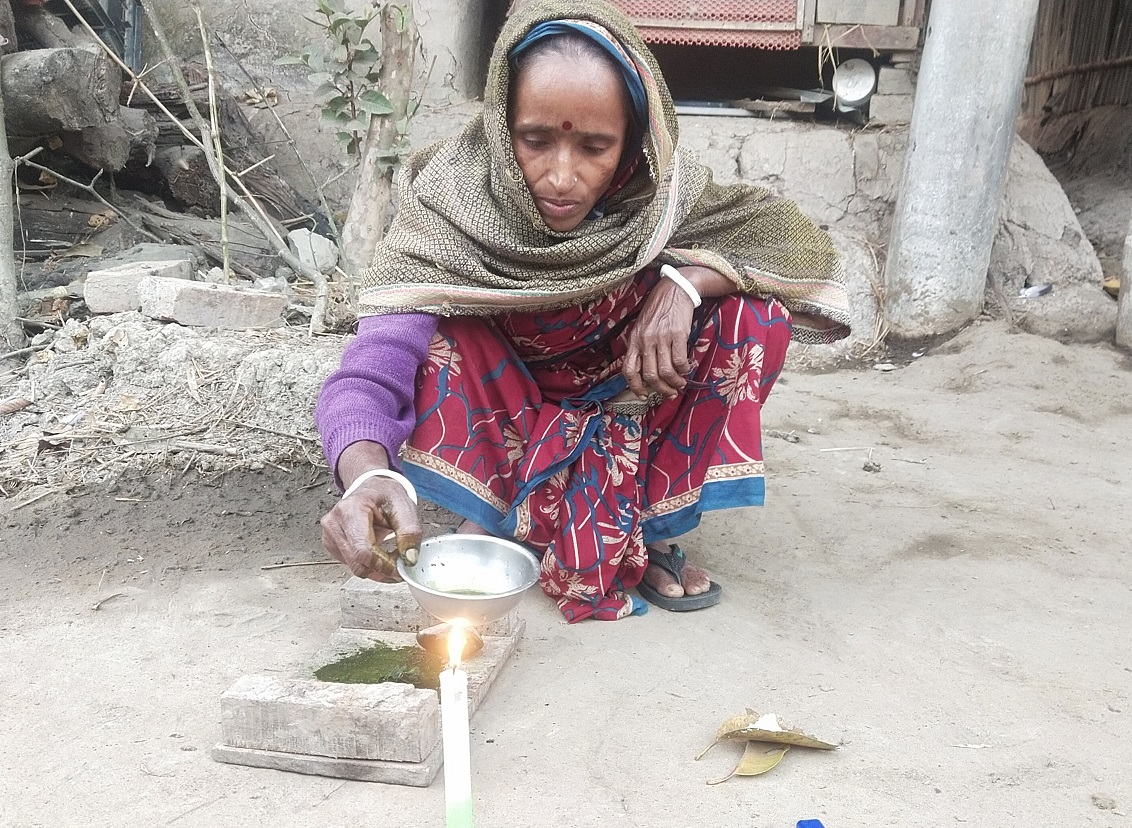Borsha Gain from the Coast
The community living in Antakhali, located in Dhumghat village of Ishwaripur Union in Shyamnagar Upazila, Satkhira is predominantly agrarian, with the local community relying heavily on crop cultivation and livestock rearing for their livelihoods. Despite facing numerous climate change induced challenges, they continue to sustain their agricultural practices for years.

It has been found that climate change has led to an increase in livestock diseases compared to the past. Besides, rising salinity in coastal areas has reduced grazing lands, and fodder shortages have further intensified the difficulties. Yet, the local community still raising livestock, using their indigenous knowledge to treat various diseases of livestock such as Lumpy Skin Disease (LSD), foot-and-mouth disease, anthrax, and black quarter.
The rapid change of climate has been bringing extreme heat, milder winters, and unpredictable weather patterns and this change has impacted both on humans and livestock suffering from ailments like sore throat, swelling, fever, cold, cough, pneumonia, and pox. The local community relies on indigenous remedies to provide primary treatment for these conditions. Ingredients such as hyacinth bean leaves, salt, lentil paste, and fried rice are commonly used for treating livestock diseases.

Traditional Treatment for Swelling in Cattle
In order to treat swollen throat in cattle, the following traditional method is employed:
- Collect fresh hyacinth bean leaves, wash them thoroughly, and clean them.
- Grind the leaves with an appropriate amount of salt.
- Extract the juice from the ground leaves by squeezing them.
- Warm the juice over low heat until it is lukewarm.
- Apply the warm juice to the swollen area of the cattle’s throat.
- Repeat this process for 5-6 days or until the swelling subsides completely.
This treatment is particularly beneficial for pregnant cows, as it avoids the risk of miscarriage associated with conventional medicines. Additionally, a paste made from lentils and roasted rice can also be applied to treat throat swelling in cattle.

Using traditional knowledge for livestock treatment ensures that the livestock remain healthy, safe, and free from diseases. It also provides financial savings for livestock owners. By relying on indigenous practices, the community reduces dependence on external resources and ensures the protection of their livestock. This approach does not only preserve traditional wisdom but also promotes sustainable and cost-effective livestock management in this climate change situation.

